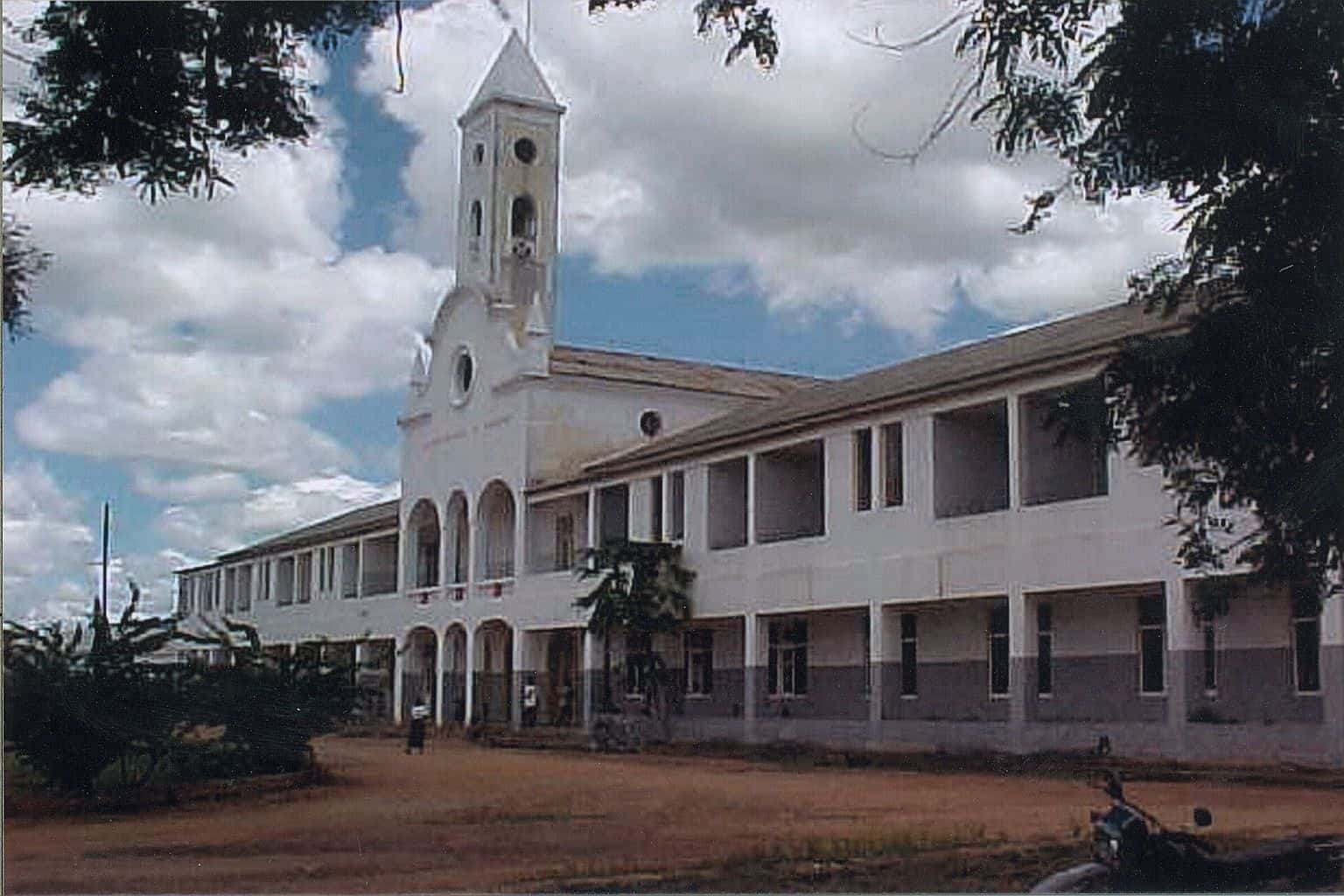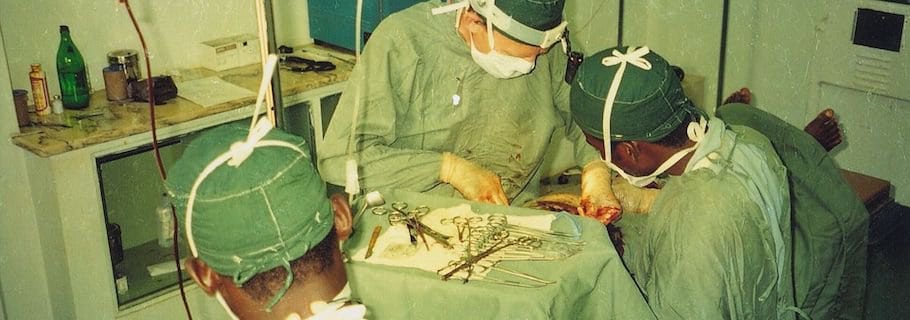Charles Woodrow is a doctor and missionary who has spent decades serving in Nampula, Mozambique. In a recent report he told of the value of medical missions and I asked his permission to share it with you. I hope you’ll be encouraged as you read it. You can learn more about Charles and his work here.
In former days I loved to operate. I found it immensely satisfying to do a one-hour procedure that relieved someone of a problem that had left him incapacitated, sometimes for decades, because surgical care simply was not available to the vast majority of Mozambicans. But even then, the overwhelming motive in helping needy patients was always evangelism.
Marrere was a 150-bed government hospital administered by a communist regime in the first years of our ministry. Nevertheless, I, together with my associates on the surgical team, prayed with every patient in the OR, conducted evangelistic rounds on the ward, handed out gospels of John in the clinic, gave out free gospel tracts to everyone we preached to, sold Bibles from the surgical block, and every Sunday in the main hall of the hospital held evangelistic services which were attended by patients, family members, and staff. For years under communism, the only place in north Mozambique where people could get a Bible was from our operating suite, the precursor of the bookstore we opened 13 years later. No one with the government or hospital ever complained about all the evangelistic work—they were simply glad there was a trained surgeon in the community.

Surgical missions in under-served areas presents striking advantages for evangelism:
1. Patients strive diligently to come to you. You do not have to go to them, apologizing for invading their privacy or encroaching on their time.
2. You are able to proclaim the gospel at a time in life when your listeners are keenly aware that there are serious problems they cannot remedy in their own strength, and there are worrisome risks they must accept. They know they need God’s help, and they want it
3. You can evangelize a large geographical area–while traveling only a few miles from home. At Marrere, people came from all over the province and from an additional four states as well. Those five provinces represented half the nation.
4. Medical evangelism affords the opportunity to tell people about Christ in the context of helping them with no expectation of personal gain. It confirms that their well-being is your motivation in telling them the gospel.
5. Medical work gives credibility to the evangelist. It shows that he not only wants to help his listeners, but that he can help them. If the physical problem can be remedied, then what the physician has to say about the spiritual problem should be worth listening to as well.
6. Mission hospitals provide conspicuous testimonies before entire communities of the transforming work Christ accomplishes in Christians. In primitive cultures, the kind of medical care Christians provide stands in marked contrast to the carelessness and lack of compassion that often characterizes other care-givers.
7. The medical work opens a host of doors to the missionary team, winning them friends at all levels in the community, making them eager to help the missionary enterprise. Though God can work any way He pleases to open doors, our experience has been that He uses the medical card repeatedly to trump the best efforts of the evil one as he seeks to hinder the ministry of God’s word.
At the height of the medical ministry at Marrere, over 4,000 people each year heard a full presentation of the gospel, just at the Sunday evangelistic services. That was an average attendance of 80 people per service. I kept track of the total by counting the gospel tracts we gave away each Sunday. The opportunity to speak of Christ to people who would never darken the door of a church but will come to a hospital pleading for help is nothing to despise. We look forward to soon capitalizing on that opportunity once more.
Only now we will have a strong local church where people who respond to hospital evangelism can return to be nurtured in the doctrines of salvation by grace through faith, the only gospel that truly saves. For those farther away, we have our list of 2,000 church leaders throughout the north who know us through their participation in the Fiel conferences and seminars over the past 18 years.
Twenty-seven years ago, I had the weekly privilege of looking upon the attentive faces of scores of people who through evangelistic preaching were convinced of their need to find out more about Christ in order to believe on Him. But it was enormously frustrating to think that virtually everyone who ended up in local churches would be taught to trust rather in rules and religious works for salvation. I am glad that today there is an increasing number of preachers proclaiming the true gospel!
We trust that the many years away from the OR, shoring up the local churches with conferences, seminars, and the best Portuguese Christian literature available, were all decreed by the Lord for the purpose of making future medical evangelism more effective than it was in the past. Because evangelism will be the most essential and important ministry carried on at our hospital.
Please visit Grace Missions Ministries to learn more about Charles and his work in Mozambique.










